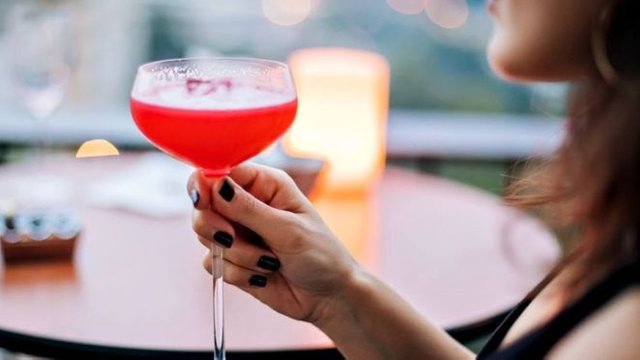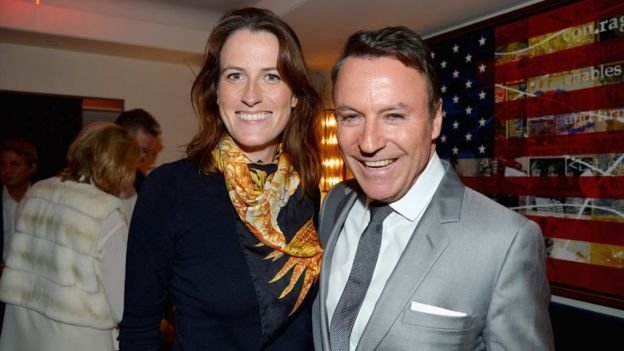Why are single women still mistaken for prostitutes?

In the age of #MeToo, a single woman sitting alone in a restaurant shouldn't be a problem.
Especially, you would think, if that restaurant is in the middle of New York, one of the most progressive cities on the planet.
So when Clementine Crawford was reportedly told she could no longer sit at the bar of her favourite Manhattan restaurant, she was confused. As she wrote later, she was even more confused when a man, arriving not long after she had been sat at a table, was allowed to take a seat at that very same bar.
It was only, she says, when she pushed for a reason, that she was told "the owner had ordered a crackdown on hookers". Her years of regular dinners, and her high-flying job, appeared to mean nothing. The implication for all single women was clear.
Incensed, Clementine, who divides her time between London and New York for her job with Finch & Partners, pushed for her right to sit at the bar, alongside her single male counterparts.
But instead of a grovelling apology, her arguments were met with a shrug. She left the restaurant - a place she had loved, a place where the waiters had known her name, and now a place she no longer felt welcome.
"All these years we have been battling for a room of one's own," she wrote. "Little did we know it, but we are still fighting for a seat at the table (or bar, to be strictly accurate)."

Clementine Crawford, pictured here with TV personality Colin Cowie, is a senior executive with Finch & Partners
Eating alone as a single woman is - for many - a daunting process. The protective barrier of a book or, more recently, a phone, makes it easier. Somehow you feel less exposed, less vulnerable.
But ask around, and no one can quite put their finger on why they felt vulnerable in the first place. Certainly experiences like Clementine's - where the assumptions of staff or other diners is articulated quite so blatantly - appear few and far between.
But, Clementine tells the BBC, it may be more common than we think.
"Since the article was published a number of women - including women who live in modern-day Manhattan - have declared they experience similar treatment in a number of different settings and are relieved that a voice has been given to the '#smallstuff'," she told the BBC.
"The restaurant anecdote is just symbolic of the many daily things women still have to endure even in this post #metoo era.
"Some even said they don't feel comfortable dining alone for fear of objectification - that eating unaccompanied is a brave thing to do."

Gloria Atanmo has built a successful career as a travel blogger
US travel blogger Gloria Atanmo definitely recognises feeling exposed when dining by herself during five years exploring the world.
"I travel by myself a lot and I have definitely had times where people look at me like I am waiting for a customer," she told the BBC.
But there have also been the more blatant incidents where there was no mistaking exactly how she - a single woman of Nigerian origin - was seen, even when dressed in jeans and a jumper.
"I think Rome was possibly my worst experience," she recalled. "I'm waiting under a bus stop sign, and every five or 10 minutes a car would slow down as it passed.
"Finally, I got on the bus and maybe about five minutes into the drive I noticed women claiming their 'corner'. And they literally looked like me."
Gloria also decided to write about her experiences on her blog, and, just like Clementine, was inundated with women wanting to share their stories of being single, and being mistaken for sex workers.
But it wasn't just one group which found themselves stereotyped. In some places, looking Russian or eastern European meant you were equally likely to be perceived as a prostitute.
The assumption a single woman by herself must be a sex worker is also not restricted to just the bars, restaurants and streets.
Last year, Sherry Collins - the founder and editor of creative industry bible Pitch - revealed she had been asked "how much for the night" by a man during an event at Cannes Lions International Festival of Creativity.
As a result, she decided to take out a full page advert on the back page of her magazine the next year. It said, in capitals: "We are black creative women heading to Cannes. Please do not ask us how much for the night #AssumeNothing."
"I speak out about this because I don't want someone I care about who works with me to experience what I experienced," she explained.
Clementine had similar motivations when she spoke out: she says the article was her way of lifting the lid on a part of the fight for equality which doesn't often get talked about - the small ways in which women are objectified, or diminished, on a daily basis.
"I am surprised that my essay has received such widespread attention," she said. "But it has struck me that the reason for this is that it has hit a cultural nerve, sparked another layer of debate with respects to equal rights that has not yet been appropriately called out or covered in mainstream debate."
Most importantly, none of these women are willing to go unheard - and they are not willing to back down. Even with everything she has experienced, Gloria refuses to give up on any aspect of the life she choose to live - including eating alone.
"I think there is something empowering about eating and drinking by yourself," Gloria said. "You become an enigma.
"It says, I do not need someone on my arm to exist the way I want."
Source:bbc